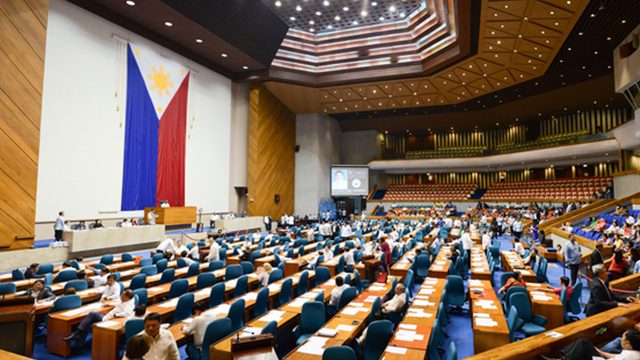SUMMARY
This is AI generated summarization, which may have errors. For context, always refer to the full article.

MANILA, Philippines – The presidents of the 5 Ateneo universities across the country slammed members of the House of Representatives for “railroading” moves to amend the Constitution, and urged them to consult all sectors “to establish credibility and trust” in the Charter Change process.
In a statement on Monday, December 17, Ateneo presidents hit lawmakers for passing on 3rd and final reading the resolution that seeks to shift the Philippines to a federal system of government where “the process of deliberation has been undermined and hijacked.”
“Amidst the backdrop of allegations of pork barrel spending in the proposed 2019 budget the Lower House of Congress passed Resolution of Both Houses Number 15 (RBH 15) on 3rd and final reading, pushing what many see as Charter Change as being railroaded,” they said.
“We urge the administration to undertake instead a wider and more consultative discussion on constitutional reform. Only by undergoing a genuine and participatory national dialogue will Filipinos attain a level of consciousness where they can properly decide whether to change the charter or not,” they added. (READ: Is there a need to change the 1987 Philippine Constitution?)
The statement was signed by Fr Karel San Juan SJ of Ateneo de Zamboanga University; Fr Joel Tabora SJ, Ateneo de Davao University; Fr Jose Ramon Villarin SJ, Ateneo de Manila University; Fr Roberto Rivera SJ, Ateneo de Naga University; and Fr Roberto Yap SJ, Xavier University – Ateneo de Cagayan.
Sounding the alarm: The heads of the Ateneo schools noted 3 “troubling” features of the resolution. (LIST: Major constitutional changes the House wants under federalism)
First, it removed political reforms such as the proposed anti-dynasty law and the need for a clear political party reform agenda. In fact RBH 15 “removed all references to political dynasties,” which were already part of the 1987 Constitution.
Second, it removed term limits for congressmen, senators, and local government officials. With no limits on expansion of political dynasties, the Ateneo presidents warned it could leave power concentrated with few political clans.
Third, it removed Article 13 of the Constitution, which recognized social justice and human rights as the “highest priority” of the State when enacting laws that would benefit Filipinos. Dropping these in RBH 15, they said, “weakens” the commitment of government to protect marginalized groups.
“These features of RBH 15 alone, combined wth unreasonable pace and non-inclusive process, are likely to exacerbate further the trust deficit that presently characterizes the federalism discussion…. RBH 15 dramatically departs from the reform process initiated by President [Rodrigo] Duterte, which called on the Constitutional Committee to Review the Constitution to help push debates and discussion on constitutional reforms,” they said.
Involve everyone: Because of this, the Ateneo presidents called on lawmakers to consult all sectors so that trust would be established when instituting reforms to the country’s basic law.
Failure to do so, they said, will only lead to more Filipinos viewing the moves to change the Constitution as a “ploy of dynastic politicians to further strengthen their hold on power.”
“Charter Change is a difficult arena for reforms. Clearly, a transition to a federal system cannot be bound by a constricting timetable such as the term of President Duterte. Empirical evidence, substantial independence and objective will be critical in forging a consensus. Anything less than these merely exposes the true intentions of the so-called “reformists,”” they said.
While RBH 15 indeed went through deliberations and viva voce voting or a vote of ayes and nays at the plenary, the debates lasted for only 3 session days. Constitutional amendments panel chairperson Vicente Veloso said the House is targeting to pass RBH 15 on 3rd and final reading by February or March 2019.
Passage of the bill, however, remains an uphill battle. Senators already said the draft federal charter would be “dead on arrival” at the Senate. – Rappler.com
Add a comment
How does this make you feel?





There are no comments yet. Add your comment to start the conversation.